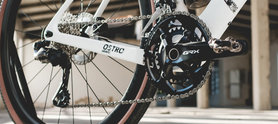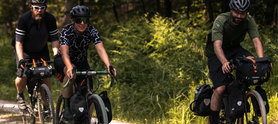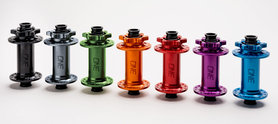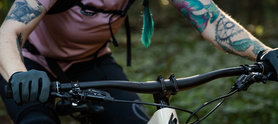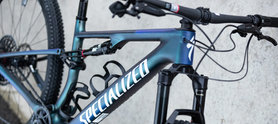Shoecovers
OUR Shoecovers RECOMMANDATIONS
Our Suggestions
Shoecovers for cyclists are inconspicuous but very practical helpers. They come in handy when your normal cycling shoes have reached their limits. On any e-bike or bike, shoecovers can help keep your feet dry in rainy weather and warmer for longer in the cold weather. Special shoecovers for road biking improve your aerodynamics. On an MTB, shoecovers protect feet not just from moisture, but also from mud. When you don't need them, simply stash them in your jersey pocket or your backpack. Whether you’re looking for protection for cold or rainy weather, or if you’re looking to further improve your aerodynamics, you'll find the right shoecovers for your bike here! Read further and discover more.
The Right Shoecovers for Your Next Bike Adventure
Shoecovers for cycling differ fundamentally according to their intended use. The material determines how well they protect your feet from wind, moisture, cold and dirt or whether they only offer an aerodynamic advantage. Cut and fit are also important. For example, shoecovers for bikes are available in different lengths, comparable to gaiters. You should pay attention to the sole to assess how well you can walk short distances while wearing shoecovers. High-visibility shoecovers with reflective elements and fluorescent neon colours ensure that you are better seen in traffic with poor visibility conditions. Our filters help you narrow down our selection find your ideal pair of shoecovers from VAUDE, GripGrab, veloToze, ASSOS, Endura, Shimano or other top brands.
Rain Protection for Your Shoes When Cycling
Shoecovers for rainy weather are often used while biking. Waterproof shoecovers are less expensive than special rain shoes with waterproof membranes, and you can easily stash them in your jacket pocket in case of unpredictable weather. This way you can enjoy the breathability of your favourite shoes as long as it's dry, and when it starts to rain, you can just pull the shoecovers over them. Wearing waterproof covers in the rain is only useful if the water can’t creep in from above. To prevent this, the leg cuff on your shoecover should have the best possible fit. A pair of long rain pants that extend over your shoecovers is also very helpful.
Warm Cycling Shoecovers for Winter
When your warmest socks are no longer enough, insulated shoecovers are a good alternative to winter shoes – especially if you only need them occasionally. To combine moisture protection and insulation, many shoecovers for bicycles are made of neoprene – the thicker, the warmer. Some manufacturers combine waterproof membranes with brushed interiors to make lighter shoecovers that also offer cold weather protection. On road bikes, shoecovers combine protection from dreary weather with aerodynamics in winter.
Toe Covers for Road Cyclists
Toe covers are shoecovers that only cover the toes. They are popular with road cyclists, but are also useful for mountain biking. Many XC and road cycling shoes have larger areas at the front that are made only of airy mesh materials. They provide ventilation in summer, but in winter they can let the cold in. Toe covers allow you to cover these "windows" and keep wind and splashing water out. They offer a distinct advantage over full-size shoecovers: toe protectors take up even less space in your jersey pocket. Use our shop’s search filters to find the right toe covers for your needs.
The Sole Question: Bike Shoecovers for Normal Shoes or Clipless Pedals
Most shoecovers are designed for clipless pedal shoes. They either have a sole with a cut-out for the pedal plate or have their own sole only in certain areas, as well as straps to secure them underneath the sole of the shoe. For MTB shoecovers, you should make sure that the sole is as durable as possible. Shoecovers with closed soles that are suitable for everyday footwear or for flat pedal shoes are the exception.
Cycling Shoecovers: Which Size?
Shoecover sizes for cycling shoes are usually given in normal shoe sizes. Just check what size your shoes are and choose your shoecovers accordingly. As with socks, individual sizes cover a certain range. Stretch materials or adjustable fasteners allow some leeway here. Make sure to pay attention to the length and the leg cuffs, as they determine how well the shoecovers protect against moisture and how much they improve aerodynamics.







